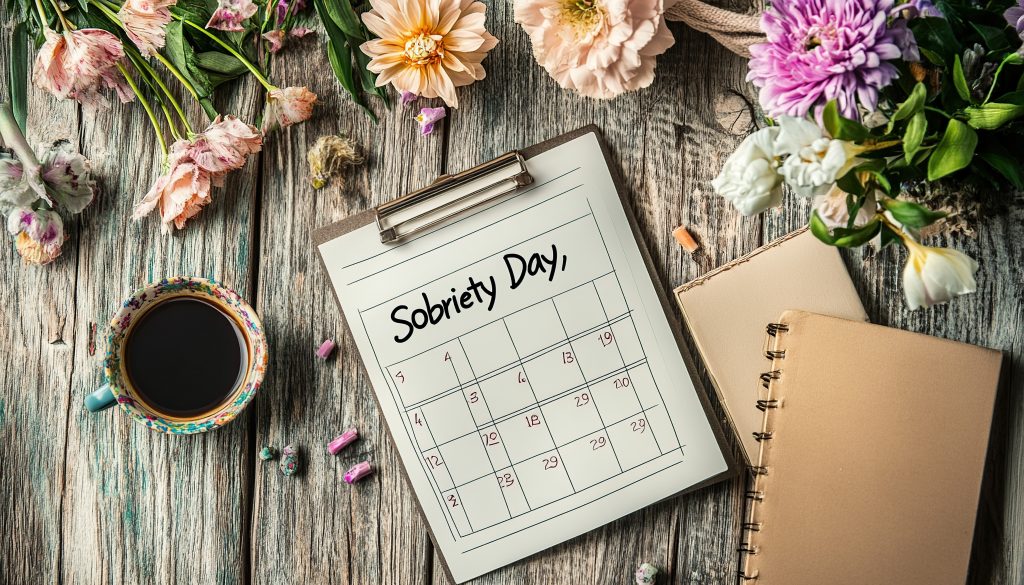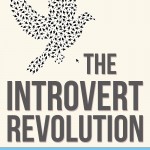
Recovery from addiction is not a one-size-fits-all journey—especially for introverts, who often thrive in solitude rather than crowded support groups. While traditional programs provide vital structure for many, their highly social nature can feel draining rather than healing for those who recharge alone. A truly sustainable approach to recovery must honor individual needs while addressing the negative impacts of addiction on both mental health and physical health.
For introverts, the path to recovery isn’t about forcing extroversion but about crafting a personalized process that aligns with their natural tendencies. The key lies in balancing professional support with the freedom to heal in a way that feels authentic—and, ultimately, sustainable. Continue reading this blog for more.
Crafting a Personalized Path to Recovery
For introverts, a successful recovery process often involves structured daily routines, quiet reflection, and accessible health resources. Here’s how to build an effective strategy for sustainable sobriety:
1. Focus on Mental and Physical Health
Mental and physical wellness are both crucial for sustainable recovery. Here are practical ways to nurture both:
- Meditate for a few minutes daily to reduce stress and improve emotional regulation
- Engage in moderate exercise like walking, yoga, or swimming several times weekly to boost endorphins
- Establish consistent sleep habits by maintaining a regular bedtime and wake-up schedule
- Eat nutritious and satisfying meals to stabilize mood and energy levels
- Limit caffeine and sugar, which can trigger anxiety and energy crashes
- Try expressive writing to process emotions and track recovery progress
- Connect with nature regularly, even if sitting outside for a few minutes
Small, consistent actions in these areas create compounding benefits that support both immediate recovery and long-term sobriety.
2. Develop an Individualized Recovery Plan
Creating a personalized recovery plan empowers introverts to heal in ways that align with their natural strengths. You can consult experts such as the West Coast Recovery Centers team and other treatment providers to ensure that your plan suits your health status and priorities for recovery.
Consider these key elements when building your customized approach:
- Identify quiet healing spaces where you feel safe to reflect and recharge
- Curate a personal recovery toolkit with books, podcasts, and apps that resonate with you
- Schedule solo creative time for art, music, or writing as emotional outlets
- Set small, measurable goals to build confidence through achievable wins
- Choose low-pressure social options like online forums or one-on-one therapy sessions
- Track progress visually using journals or apps to see your growth over time
- Build in regular check-ins with a trusted professional to adjust your plan as needed
A truly effective recovery plan evolves with you, honoring your need for both independence and support.
3. Leverage Outpatient Treatment Options
Outpatient programs offer introverts the perfect balance of professional support and personal autonomy. These flexible approaches can be tailored to fit your unique recovery needs:
- Research different program structures to find one with the right intensity and schedule for you
- Prioritize telehealth options when in-person groups feel overwhelming
- Request individualized assignments that allow for independent work between sessions
- Identify quiet spaces for completing program requirements at home
- Utilize one-on-one counseling as your primary mode of professional support
- Ask about self-paced learning modules that let you progress comfortably
- Schedule program activities during your peak energy hours for maximum benefit
With the right outpatient approach, you can maintain your daily life while building sustainable recovery skills on your terms.
4. Navigate Triggers and High-Risk Situations
While complete avoidance isn’t always possible, introverts can develop innovative strategies to minimize exposure to triggering environments. Consider these protective approaches:
- Create a personal trigger inventory by journaling situations that test your sobriety
- Develop exit strategies for social gatherings that become uncomfortable
- Practice polite refusal scripts for unexpected offers of substances
- Identify safe public spaces like libraries or coffee shops for alternative socializing
- Schedule recovery check-ins before and after potentially challenging events
- Use technology wisely by muting triggering social media accounts or groups
- Build a digital support network of recovery forums for immediate help
By anticipating challenges and planning thoughtful responses, you can maintain your sobriety without isolating yourself from the world.
5. Build Financial Stability in Recovery
Wise money management reduces stress and supports long-term sobriety. Consider these practical financial strategies tailored for introverts in recovery:
- Create a sober budget tracking spending on healthy alternatives to substance use
- Automate savings to build an emergency fund for unexpected recovery needs
- Identify free/low-cost sober activities like library programs or nature walks
- Limit online shopping by implementing a 24-hour waiting period for non-essential purchases
- Explore sober-friendly side hustles that align with your personality and skills
- Review insurance benefits to maximize coverage for therapy and treatment
- Set financial boundaries to avoid funding others’ substance use
Financial peace of mind creates a stable foundation where your recovery can flourish.
Navigating Workplace Challenges as a Sober Introvert
Professional environments often require a careful recovery strategy for introverts. For instance, identifying quiet spaces in the office ensures opportunities for necessary recharging. Also, scheduling essential meetings during peak energy times takes advantage of natural productivity rhythms.
While having time for yourself might be comforting, remember that workplace support will also contribute to your recovery. Developing a relationship with at least one understanding colleague will help you feel supported at work while respecting boundaries. Meanwhile, on days when you feel extra pressured or stressed, keeping emergency contacts readily accessible provides a safety net.
These professional adaptations allow introverts to maintain career success without compromising hard-won sobriety. By implementing thoughtful workplace strategies, recovery can remain a priority even in demanding job environments.
The Power of Solo Creative Expression in Healing
For introverts in recovery, creative activities provide a profound nonverbal outlet for processing complex emotions. For one, keeping an art journal allows visual expression when words feel insufficient, while curating therapeutic music playlists can mirror and validate your emotional journey. Photography offers another accessible medium to document progress, creating a visual timeline of your healing.
Tactile creative practices like clay work deliver mindful stress relief, combining sensory engagement with emotional release. Meanwhile, writing poetry or short stories enables metaphorical exploration of feelings that might otherwise remain unexpressed. At the same time, you can also dedicate a small creative corner in your living space to establish a physical reminder to engage in daily artistic practice, reinforcing recovery habits.
These solitary creative outlets become honest forms of self-therapy that complement traditional recovery work. They provide introverts with alternative channels for self-reflection when conventional talk-based approaches feel overwhelming, making them particularly valuable for those who communicate better through art than words.

Building Meaningful One-on-One Connections
Introverts thrive when cultivating a few deep relationships rather than maintaining numerous superficial connections. Identifying two or three trustworthy allies for meaningful recovery conversations creates a support system that respects social energy limits.
Aside from this small social circle, you can also have regular coffee dates with a sponsor or counselor, which provides a structured connection without the pressure of group settings. If you love to read, small book clubs focused on recovery literature offer low-intensity social interaction.
While actively making social connections, it’s also vital to learn or hone social skills that can help you thrive. For instance, developing active listening skills helps deepen existing relationships, creating space for mutual understanding and support. On the other hand, setting clear boundaries about social availability prevents emotional exhaustion while still maintaining essential connections.
This might also be an excellent opportunity for you to advocate for others while also helping yourself in the process. For example, quiet volunteer opportunities that allow side-by-side interaction rather than constant conversation can satisfy the human need for connection without draining an introvert’s limited social reserves.
This focused approach to relationships ensures every social interaction has purpose and value in the recovery journey. By prioritizing quality over quantity in connections, introverts can build a sustainable support network that aligns with their natural tendencies.
Designing an Introvert-Friendly Home Sanctuary
Thoughtful home design can actively reinforce recovery by creating physical spaces that support emotional well-being. For instance, establishing a dedicated recovery corner with comforting items and resources makes self-care more accessible, while soft lighting and neutral color schemes promote natural relaxation. Displaying inspiring quotes or artwork in frequently used spaces serves as visual encouragement throughout the day.
Creating tech-free zones preserves areas for uninterrupted reflection, helping to maintain emotional equilibrium. Moreover, incorporating natural elements like plants or a small indoor fountain brings calming organic energy into the living space.
These intentional design choices transform a living space into a healing sanctuary that passively supports sobriety. For introverts who recharge in solitude, a carefully arranged home becomes both a refuge and reinforcement system, providing environmental cues that align with recovery goals.
Finding an Introvert-Friendly Treatment Program
When seeking addiction treatment, introverts should prioritize programs that respect their need for solitude and low-stimulation environments.
The ideal program will balance necessary clinical support with ample personal space for reflection. Inquire about the institution’s experience working with introverted clients and whether they offer alternative therapies like art or music sessions for those who struggle with verbal expression.
Facilities with outdoor spaces or nature-based therapies often work particularly well, as do those with flexible scheduling that allows patients to recharge between sessions. Remember that the most effective treatment meets you where you are – both emotionally and psychologically – rather than forcing you into an uncomfortable mold.
Conclusion
Sustainable recovery and sobriety require a balance of self-awareness, professional guidance, and adaptable strategies. For introverts, a quieter, more introspective approach to recovery can be just as effective—if not more so—than traditional methods. By prioritizing mental health, personalized care, and accessible health resources, introverts can build a path to recovery that aligns with their nature while ensuring long-term recovery success.
Whether through tailored programs and self-help efforts, the key is finding what works best for you—one step at a time.










